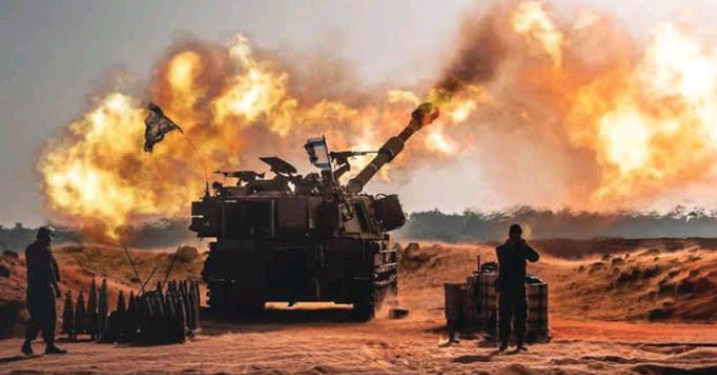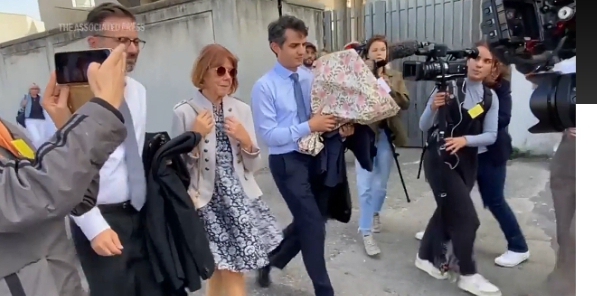Middle East conflict: Iran paranoid, Hamas, Lebanon beg as Israel unleashes fearful forces
Khalid ABRAHAM
Advertisement

The Middle East conflict has left lots of devastations with Israel carrying out unrelenting bombardments of enemies’ targets in Gaza, Hamas stronghold; Lebanon where Hezbollah militants are powerfully entrenched, both backed by Iran. The conflict erupted on October 7, 2023, after Hamas infiltrated Israel killing 1, 200 persons and taking 250 hostage. Israel immediately launched barrage of attacks against Hamas in Gaza, which according to Gaza health ministry have left over 42, 000 dead including women and children.
In solidarity Hezbollah regarded as the strongest non-state actor in the Middle East started firing rockets into Israel, which has led to the displacement of thousands of Israelis in the border region. To reverse the trend Israel went into offensive against Hezbollah and in quick succession in targeted airstrikes eliminated its leadership including the man that led the group since 1992, Hassan Nasrallah . His presumed replacement Qaseem Safieddine, and the next in line are also believed to have been taken out. Beirut and other cities in Lebanon are also reeling under heavy bombardments precipitating thousands of deaths, displacements and large scale destructions. The Lebanese fear a replication of Gaza’s episode and are in apprehensive mode.
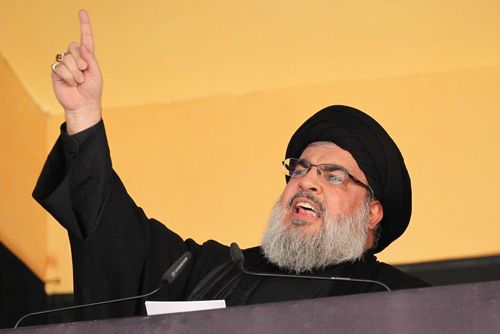
Iran which launched missiles attack against Israel on October 1, most of which were however intercepted, is now paranoid as well, of what Israel’s response will be. Israel has said it would retaliate in “a powerful, precise and surprising,” way.
Details below:
Iran engages in urgent diplomacy as it braces for Israel’s response to missile attacks
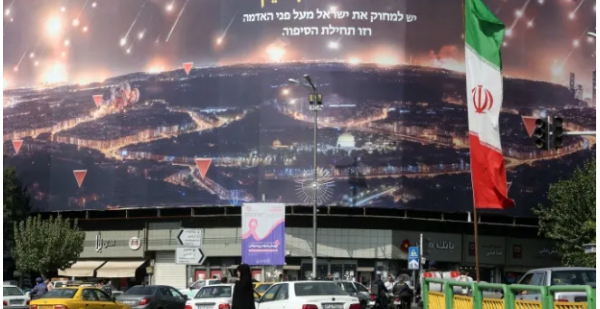 People walk on the streets of Tehran where Iranian flags and Hezbollah banners are seen, as the tensions between the two countries continue after Iran’s missile attack on Israel in Tehran, Iran on October 09, 2024. Fatemah Bahrami/Anadolu/Getty Images
People walk on the streets of Tehran where Iranian flags and Hezbollah banners are seen, as the tensions between the two countries continue after Iran’s missile attack on Israel in Tehran, Iran on October 09, 2024. Fatemah Bahrami/Anadolu/Getty Images
Iran’s government is extremely nervous and has been engaging in urgent diplomatic efforts with countries in the Middle East to gauge whether they can reduce the scale of Israel’s response to its missile attack earlier this month and – if that fails – help protect Tehran, sources familiar with the matter told CNN.
Iran’s anxiety stems from uncertainty about whether the US can convince Israel not to strike Iranian nuclear sites and oil facilities, and the fact that its most important proxy militia in the region, Hezbollah, has been significantly weakened by Israeli military operations in recent weeks, the sources said.
The US has been consulting with Israel on how it plans to respond to Iran’s October 1 attack, and US officials have made clear they do not want Israel to target Iranian nuclear sites or oil fields. US President Joe Biden spoke to Israeli Prime Minister Benjamin Netanyahu on Wednesday, their first conversation in almost two months, telling him Israel’s retaliation should be “proportional.”
The US’ Gulf allies, including the United Arab Emirates, Bahrain, and Qatar, have also expressed concern to the US about a potential attack on Iranian oil facilities, which could create negative economic and environmental impacts for the entire region, an Arab diplomat told CNN.
The Biden administration is deeply worried that the ongoing tit-for-tat attacks between Iran and Israel, which began earlier this year after Israel struck what Iran said was its consulate building in Damascus, could spiral into a major regional war that pulls the US in, too.
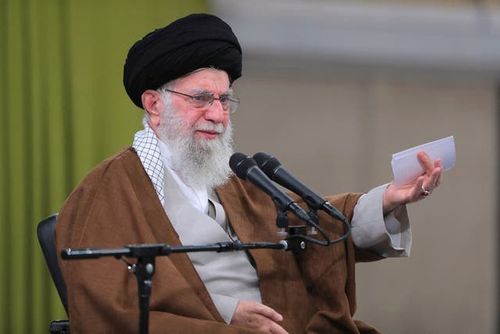
A major part of the fears is that the US’ influence with Israel has appeared to be steadily waning over the last year. Similarly to its operations in Gaza, Israel has increasingly disregarded the US’ calls for more restraint in Lebanon, where Israel’s intense bombing campaign and ground offensive has killed over 1,400 people since late last month.
Israel also did not consult with the US before conducting a massive attack that exploded thousands of pagers and walkie-talkies used by Hezbollah operatives last month, or before assassinating Hezbollah chief Hassan Nasrallah in Beirut and upending a delicate ceasefire proposal that had been put forward by the US and France less than 48 hours earlier.
Israel’s security cabinet has not yet reached a decision on how to proceed, an Israeli official told CNN on Friday. And while the gap between the US and Israeli positions is narrowing, it may not remain that way, a US official said.
“We can’t actually know whether they voted or not,” a senior administration official said of the Israeli cabinet’s discussions, expressing skepticism over the level of transparency about what Israel is sharing with the US. The official suggested they can’t “put too much stock in the machinations” of the Israeli government.
Advertisement
As of last week, Israel had not given any assurances that it would not target Iran’s nuclear facilities, CNN reported.
Israel has for decades been planning attacks on Iran’s nuclear capabilities, and just two years ago simulated striking them in a military exercise. Israel is also suspected of carrying out assassinations against Iranian nuclear scientists in recent years, and Iran’s nuclear facilities have come under siege from cyberattacks, likely from Israel—the most famous being the Stuxnet virus, which was able to penetrate Iran’s Natanz nuclear facility.
‘Our strike will be powerful’
Israel’s Defense Minister Yoav Gallant issued a strong warning to Iran about his country’s response on Wednesday.

“Our strike will be powerful, precise, and above all – surprising. They will not understand what happened and how it happened,” Gallant said.
The Gulf states, broadly, are eager to stay on the sidelines of the conflict, the Arab diplomat said. While Iran has publicly warned that any parties seen as aiding Israel will be treated as aggressors, it is also unlikely that Iran’s neighbors would explicitly come to Tehran’s defense in the event of an Israeli attack.
But Saudi Arabia, the United Arab Emirates and Qatar have told both the US and Iran that they will not allow Israel to use their airspace to strike Iran, the Arab diplomat and another source familiar with the matter told CNN. Jordan also will protect its airspace from any unauthorized intrusion, regardless of the origin, a Jordanian official said.
The US does not believe that Iran wants to become entangled in a full-scale war with Israel, and Iran’s Foreign Minister Abbas Araghchi told Al Jazeera this week that Netanyahu “is the only one who wants a war and to set the region on fire to stay in power.”
But the US has still urged Tehran, through backchannels, to calibrate its response if Israel attacks, an official said.
While Qatar regularly speaks to the Iranians and relays back to the US what they say, the US official said that ultimately “we just do not know what [Iran] will do.” Key voices within Iran will have different ideas about if and how to respond to Israel, but that will depend on the scale and scope of the highly anticipated Israeli move, another US official said.
This official said that messaging from Iran has been consistent both publicly and privately since Tehran launched its barrage of missiles at Israel earlier this month and there has not been a significant change in messaging.
Iran has been particularly interested in getting help from Saudi Arabia in preventing an Israeli attack and using their influence with Washington to help find a solution to the crisis, the Arab diplomat told CNN.
Officials from each country have met three times in less than a month, and Araghchi traveled to Saudi Arabia on Wednesday to “consult on regional developments” and to “try to stop the crimes of the Zionist regime in Lebanon and Gaza,” he told local media.
The world is watching Israel’s every move as it contemplates how to respond. But at least until Saturday at sundown, Israel will be at a standstill to mark Yom Kippur, the Jewish Day of Atonement and the holiest day of the year in Judaism. And though it’s not impossible Israel might launch action, shops, restaurants and other services will be closed, public transport will not be operating and even the country’s main airport — the Ben Gurion in Tel Aviv — will be shut down.
Hamas appeals for help, says inaction of international community could lead to its collapse
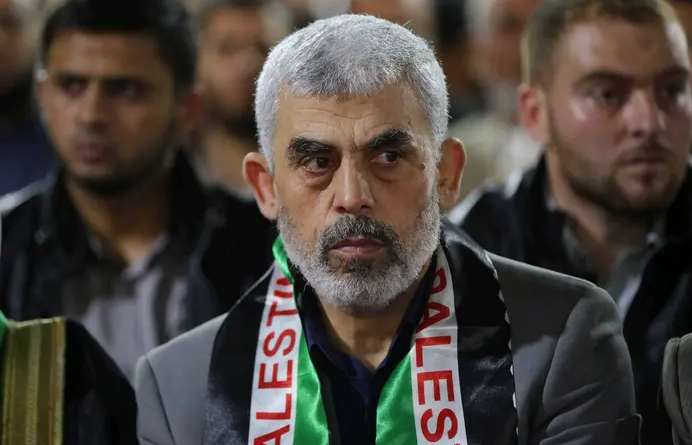
According to Al Jazeera, Hamas has condemned the recent bombing of a school shelter and other attacks in Gaza, labeling them as “Zionist war crimes with American cover as part of the war of genocide against our Palestinian people.”
This condemnation reflects Hamas’s outrage over what it describes as a systematic campaign targeting vulnerable civilians, including assaults on residential areas, homes, shelters, and displacement centers. The group accuses the U.S. administration of complicity in these actions, claiming it has become a partner in this “genocide.”
The violence in Gaza has escalated significantly over the past year, with Hamas characterizing the Israeli military’s operations as “heinous” and intentionally aimed at civilian populations.
They are calling for urgent international intervention, warning that continued inaction could lead to the “complete collapse of the international system with all its foundations, laws and values.” This rhetoric emphasizes Hamas’s belief that the ongoing conflict transcends regional issues, posing a challenge to global humanitarian principles.
The situation in Gaza has become critical, with reports indicating that thousands of Palestinians have died since Israel intensified its military response following a surprise attack by Hamas on October 7, 2023.
This initial attack resulted in heavy casualties on both sides and triggered an extensive Israeli bombing campaign across Gaza. The humanitarian crisis has worsened as infrastructure deteriorates under relentless airstrikes, leading to severe shortages of essential supplies such as food, water, and medical care.
Hamas’s leadership presents its actions as a response to years of oppression and violence against Palestinians, citing the ongoing blockade of Gaza and Israeli military operations in the West Bank. The group argues that its recent attacks are necessary defenses against what it perceives as existential threats from Israeli policies and military actions.
As international calls for a ceasefire grow stronger, the prospects for peace appear bleak. The cycle of violence seems poised to continue, with both sides firmly entrenched in their positions. Hamas’s assertion that it will not relent in its fight for Palestinian rights resonates deeply with its support base, even as civilian casualties rise.
The international community is under increasing pressure to respond to the humanitarian crisis in Gaza while navigating the complex political landscape created by decades of Israeli-Palestinian conflict. As tensions escalate, the risk of broader regional instability looms large, raising urgent questions about accountability and the future of peace efforts in the region.
Lebanon begs for peace, says Israel is replicating what they did on Gaza in their land
In a meeting hosted by Pakistan at the United Nations headquarters in Geneva, Lebanon and several other nations have urged the international community to ramp up pressure on Israel to put an end to its ongoing military operations across the Middle East.
Advertisement
The meeting, which was convened to review the humanitarian impact of the conflict in Gaza one year on, saw representatives from various countries express grave concerns over Israel’s tactics and the catastrophic consequences they are having on civilian populations.
According to reports from Reuters, Lebanon’s envoy to the UN, Salim Baddoura, accused Israel of deploying the “same sinister playbook” in Lebanon as it had in Gaza, leading to further destruction and loss of life. He poignantly questioned, “As these atrocities continue, what is the real and ultimate goal of this?”
The Palestinian ambassador spoke of the “indescribable” suffering endured by the people of Gaza over the past year, where health authorities have reported over 42,000 deaths since Israel’s campaign began. Much of the densely populated region has been reduced to rubble.
In Lebanon, where Israel has intensified its operations against the Hezbollah group, the situation is equally dire. Over 1,000 people have died and more than one million have been forced to flee their homes in the past month alone, according to Lebanese officials.
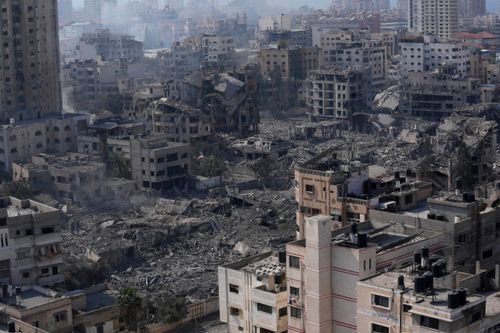
While Israel maintains that its strikes in both Gaza and Lebanon are aimed at military targets and efforts are made to minimize civilian casualties, both Hezbollah and Hamas have denied accusations that they use civilians as human shields.
The ongoing military action against Hezbollah, a heavily armed group, is seen by Israel as necessary to protect its northern border, which has been subject to rocket attacks in support of Hamas. Thousands of Israeli citizens have been evacuated from the region as a result of these attacks.
During the meeting, representatives from other nations, including South Africa, Turkey, and Spain, echoed similar sentiments, calling for an immediate ceasefire and unimpeded humanitarian relief. South Africa’s envoy, Mxolisi Nkosi, described the situation in Gaza as an “apocalyptic humanitarian catastrophe,” while Turkey’s ambassador, Burak Akçapar, called for a full arms embargo on Israel, questioning the clarity of its military objectives.
